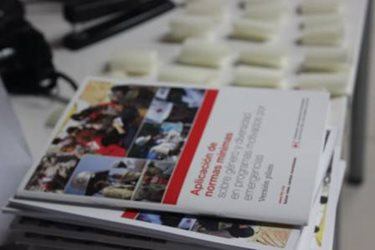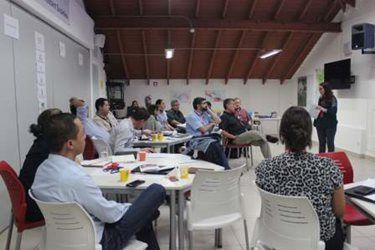The moments, days, and years following a disaster or emergency will be felt differently by each person who was affected. Some groups of people are more vulnerable to the impacts of these events than others – recognizing those unique vulnerabilities is an important part of preparing for, and responding to disasters and emergencies. The Canadian Red Cross is working with partner National Societies and the IFRC to help ensure the needs of the most vulnerable are met during times of emergencies and disasters
There isn’t a single factor that will put someone at risk of violence before and during and after a disaster. A combination of underlying issues, like inequalities can be amplified after a disaster and have the potential to increase the risk of gender-based violence in some contexts.

In a nutshell, gender-based violence,
or GBV, is an umbrella term for any harmful act against a person that is based on societal differences between men and women. It includes acts that inflict physical, sexual, or mental harm or suffering, as well as threats, coercion, and acts that deny people their freedom – these acts can occur in private or in public. . Raising awareness and educating people about gender-based violence goes hand-in-hand with talking about diversity, as people can also experience vulnerabilities due to their age, gender, race, sexual orientation, disability, HIV status, social and economic status, religion, nationality and ethnic group
Felipe Delcid is the Americas Continental Operational Coordinator with the International Federation of the Red Cross (IFRC). With support from the Canadian Red Cross, and the Government of Canada, Felipe helped to facilitate workshops in Guatemala and Panama on Gender and Diversity in emergencies and addressing gender-based violence. The workshop in Panama specifically, was to familiarize key staff who work in Disaster Management with
the minimum standard commitments to Gender and Diversity in emergency programming and it was attended also by members of the reference centre for institutional preparedness (CREPD) and the staff of the
CERA initiative (Capacity Building for Emergency Response in the Americas).

These workshops allowed members from IFRC and Red Cross societies in the Americas to discuss the steps they are currently taking to address gender and diversity in their local programs, learn from each other’s experiences, and to discuss how emergency response projects and every day operations can include gender and diversity issues.
"The goal of these workshops is to identify the actions that are already being taken in the region and to establish the base at the regional level to take a more gender responsive approach in supporting gender and diversity approaches during an emergency response.” Felipe said.
“It is important to plan for including this work before disasters hit”, Felipe explained, "Women and men, boys and girls of all ages have different needs and different vulnerabilities. All our actions should include a gender and diversity approach not only during an emergency, but also well before and after. Implementing relief operations with a gender perspective allows humanitarian workers, volunteers, and communities to address the needs of people according to their specific requirements, respecting health status, social status, ethnicity and more. "
Besides workshops, Felipe said part of this work includes strengthening partner national Red Cross societies’ capacity at the local level to make sure those responding to disasters and emergencies have an awareness of gender-based violence and diversity, and how it impacts people, liaising this approach with protection principles such as do no harm.
Felipe noted that after people took part in the workshop they left with a mindfulness that, "it does not take millions of dollars to have gender-based violence and diversity aware approaches. What is needed is some time, willingness, motivation, and having leaders be familiarized with those needs so they can plan their responses. "